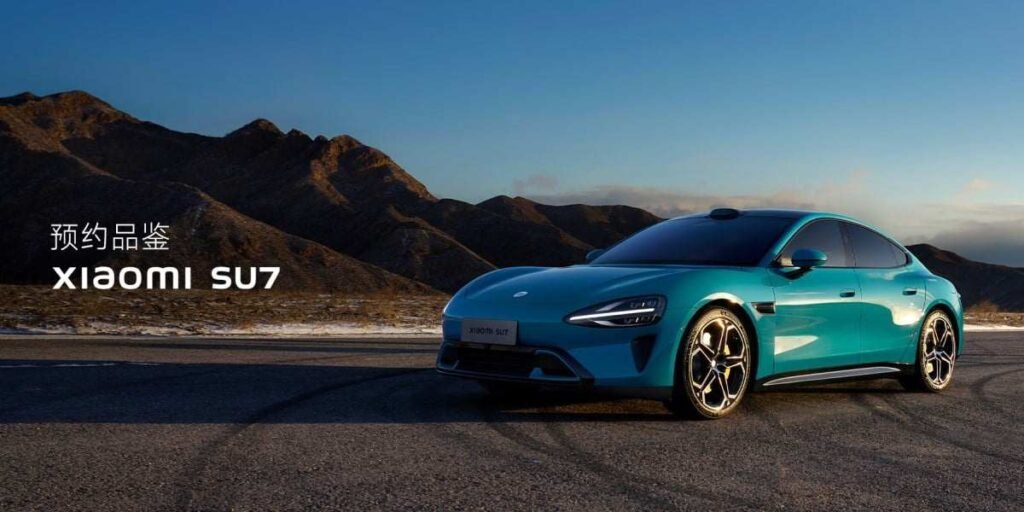
Xiaomi Electric Car has made a powerful entrance into the electric vehicle (EV) arena. from the tech giant synonymous with smartphones and smart home appliances to Just two years after announcing their venture into the smart electric vehicle (SEV) market, Xiaomi unveiled their showstopper – the Xiaomi SU7. Xiaomi launched orders for its SU7 electric sedan, pricing it at $29,870. This marks its entry into the electric vehicle market with competitive pricing, aiming to make electric mobility accessible to all. This bold move has sent shockwaves through the industry, particularly with its aggressive pricing strategy and focus on cutting-edge technology. Let’s delve deeper into Xiaomi’s electric car ambitions and explore what they bring to the ever-evolving EV landscape.
From Smartphones to Smart Sedans: A Strategic Shift
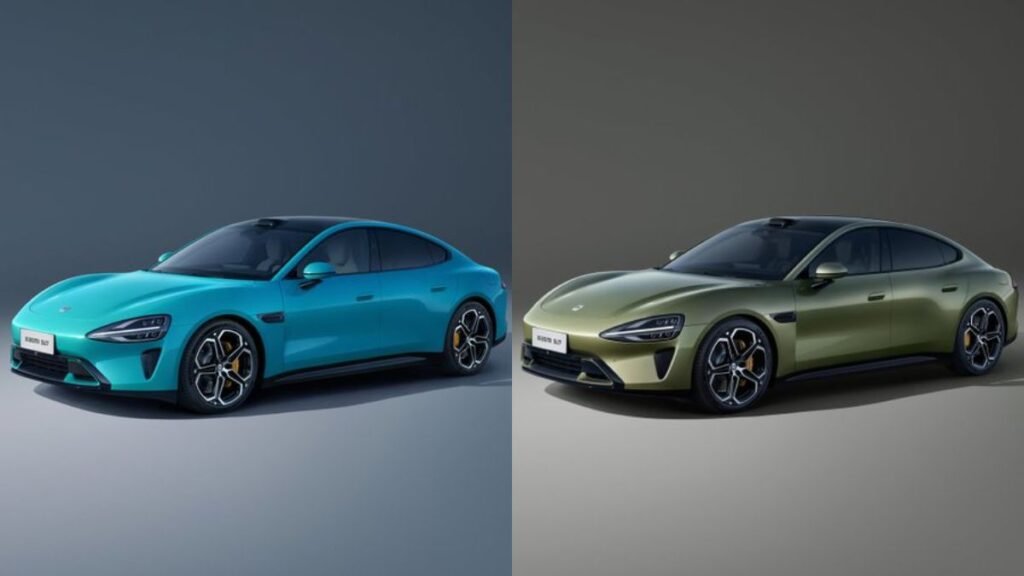
Xiaomi’s foray into EVs wasn’t a knee-jerk reaction. The company recognized the burgeoning demand for sustainable transportation solutions and the strategic fit with their existing smart home ecosystem. Their core competency in electronics and software integration positions them well to create a truly connected car experience.
Lei Jun, the company’s CEO, emphasises this strategic alignment: “Our entry into the automotive industry marks a significant leap…toward closing the loop of the Human x Car x Home smart ecosystem.” Xiaomi envisions the SU7 seamlessly integrating with your smart home, pre-heating your house as you approach or adjusting lighting based on driving preferences.
Xiaomi Electric Car: A Feature-Packed Powerhouse
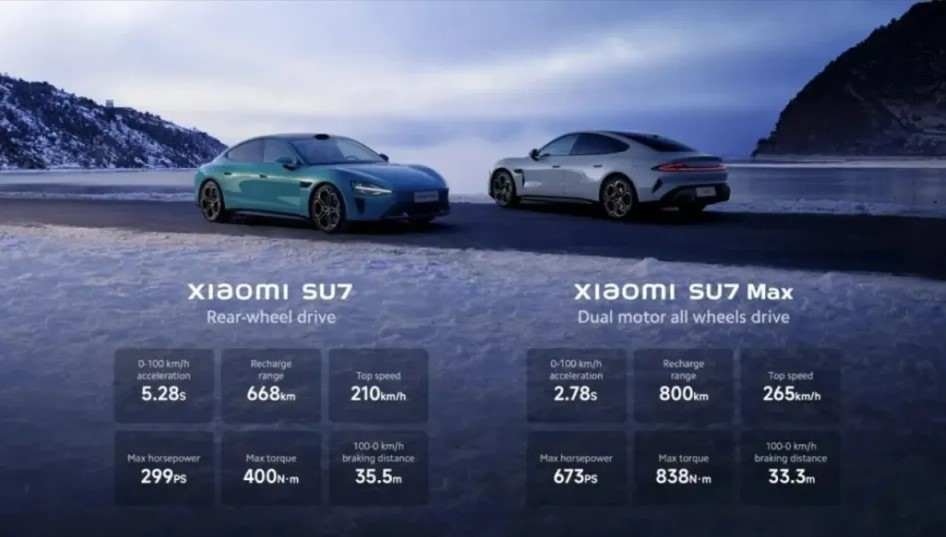
The much-anticipated SU7 boasts impressive credentials. Positioned as a “full-size high-performance eco-technology sedan,” it promises a blend of power, comfort, and innovation. Here’s a glimpse into what sets the SU7 apart:
Five Core Technologies: Xiaomi isn’t relying solely on established players for core components. They’ve invested heavily in developing their own E-Motor, Battery, Hyper Die-Casting technology for a lighter chassis, Xiaomi Pilot autonomous driving system, and a feature-rich Smart Cabin. This vertical integration allows them to optimise performance and potentially reduce costs.
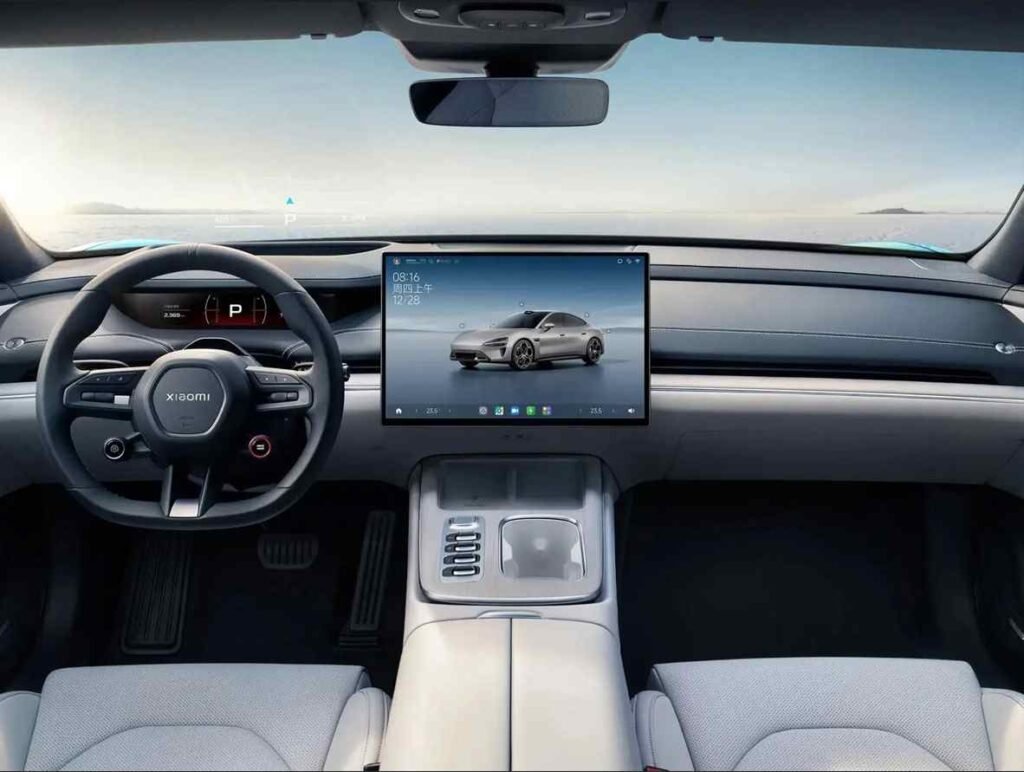
Smart Cabin – Where Tech Meets Comfort: The SU7’s interior is a tech haven, featuring a panoramic sunroof, premium sound system, and a large central touchscreen for entertainment and vehicle controls. The focus on connectivity extends to smartphone integration and voice assistant support, allowing for a personalised and interactive driving experience.
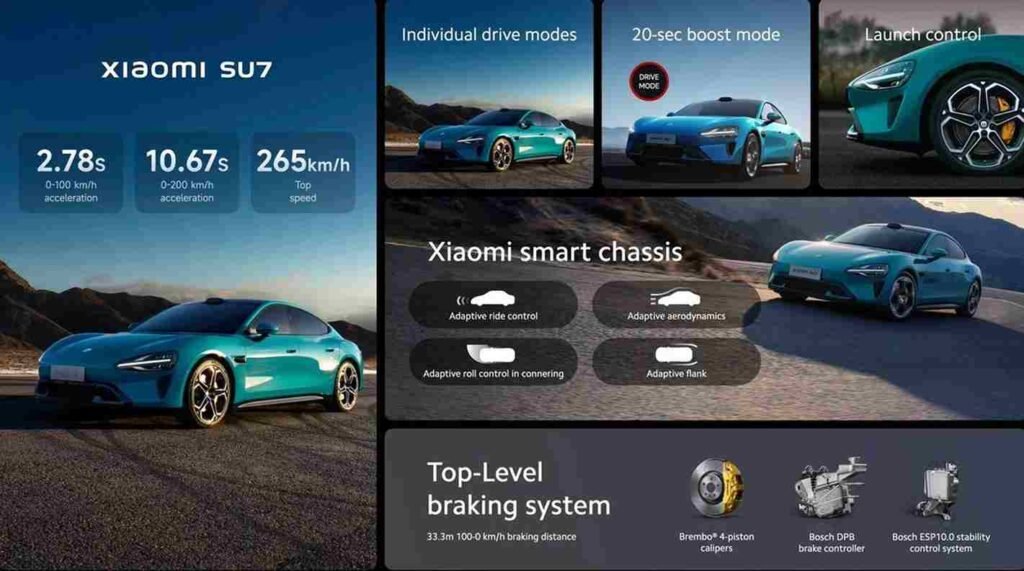
Performance Packed: The SU7 packs a punch with a reported 0-to-60 mph acceleration time of under 3.5 seconds. With a focus on handling and stability, Xiaomi aims to deliver a dynamic driving experience.
Xiaomi Pilot – A Glimpse into the Future: The SU7 boasts a suite of advanced driver-assistance systems (ADAS) powered by the Xiaomi Pilot system. This package incorporates functionalities such as automated emergency braking, alerts for lane departure, and adaptive cruise control. The system leverages an 11-camera combination and the NVIDIA DRIVE Orin computing platform for enhanced perception and decision-making. The autonomous driving capabilities promise to evolve over time, offering a glimpse into a future with increased automation.
Eco-conscious Design: Sustainability is a key pillar of the SU7’s design. The manufacturing facility boasts a solar roof and efficient waste management practices. Additionally, the long-range battery promises minimal environmental impact.
Competitive Pricing Strategy: A Disruption in the Making
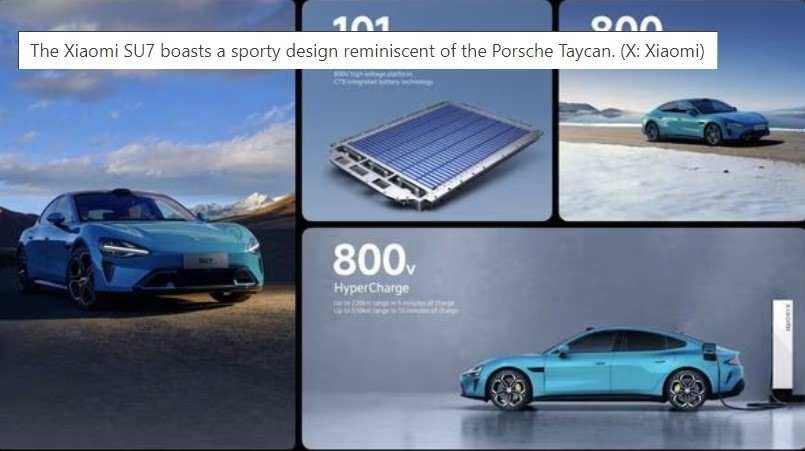
One of Xiaomi’s biggest bets is its aggressive pricing strategy. Xiaomi launched orders for its SU7 electric sedan, pricing it at $29,870. This marks its entry into the electric vehicle market with competitive pricing, aiming to make electric mobility accessible to all. The base model of the SU7 starts at a very competitive price point, significantly lower than comparable offerings from established players like Tesla. This price disruption could be a game-changer, making high-tech EVs more accessible to a wider audience. However, some analysts question whether Xiaomi can maintain this pricing model long-term, especially considering the initial investment in R&D.
The Road Ahead: Challenges and Opportunities
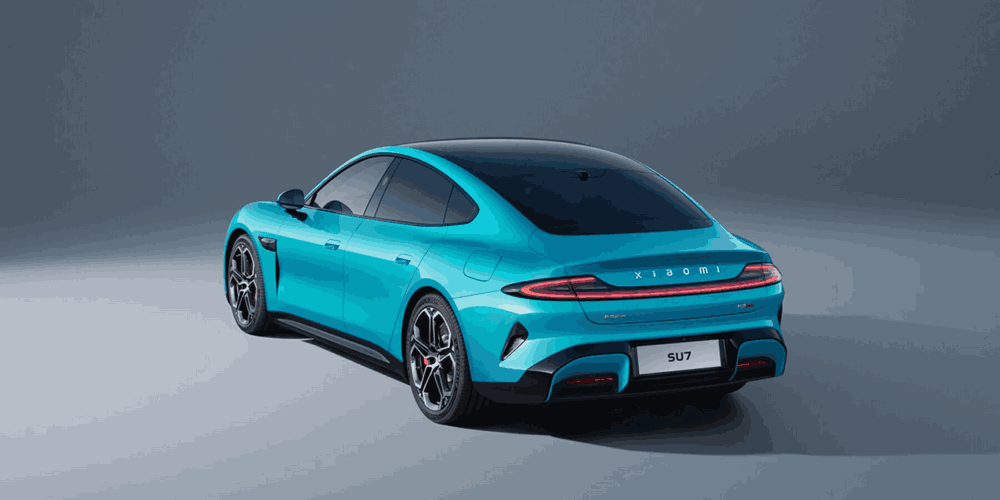
While Xiaomi’s entry is exciting, there are challenges to navigate. Building a robust car manufacturing and service infrastructure will be crucial. Additionally, establishing brand trust in a crowded market filled with established players is no easy feat.
However, Xiaomi’s strengths in technology, supply chain management, and brand recognition position them well to overcome these obstacles. Their focus on software integration and building a connected car ecosystem could be a key differentiator.
The Xiaomi SU7: A Catalyst for Change?
The Xiaomi SU7’s arrival marks a significant moment in the EV industry. Its competitive pricing and feature set have the potential to disrupt the market and make high-tech electric vehicles more accessible. Whether Xiaomi can become a major player in the EV space remains to be seen, but their audacious entry has undoubtedly shaken things up and forced established players to take notice. As the EV landscape continues to evolve, one thing is certain: Xiaomi is here to stay, and their journey will be an exciting one to watch.
FAQs
The standard model of Xiaomi’s SU7 comes at a price of 215,900 yuan (approximately Rs 25 lakh), while the Max variant is priced at 299,900 yuan (around Rs 35 lakh). Notably, these prices undercut Tesla’s starting price of 245,900 yuan (roughly Rs 29 lakh), positioning Xiaomi competitively in the electric vehicle market.
Within just 24 hours of its launch in China on March 28, the Xiaomi SU7 has created a sensation, selling out for the entire year of 2024. With an overwhelming demand, the waitlist now extends up to seven months. Priced started from $29,870, the SU7 has garnered immense popularity among car buyers, with Xiaomi reporting over 90,000 orders within the first day alone.
Xiaomi remains focused on capturing Tesla’s market share in China and has no immediate plans to introduce the SU7 in the U.S. Initial deliveries to Chinese customers will commence in April, starting with the Standard and Pro trims, followed by the Max version in May.
According to Xiaomi, the base SU7 is able to accelerate from 0–100 km/h (0–62 mph) in 5.3 seconds, while the SU7 Max goes from 0–100 km/h (0–62 mph) in 2.78 seconds. Speed is limited to 210 km/h (130 mph) for the base model, and 265 km/h (165 mph) for the SU7 Max.
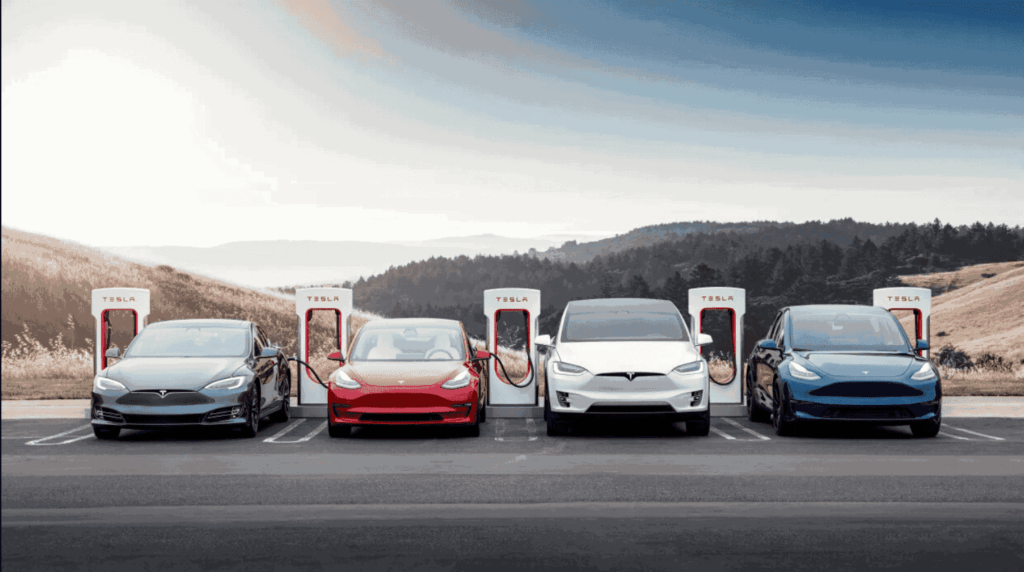
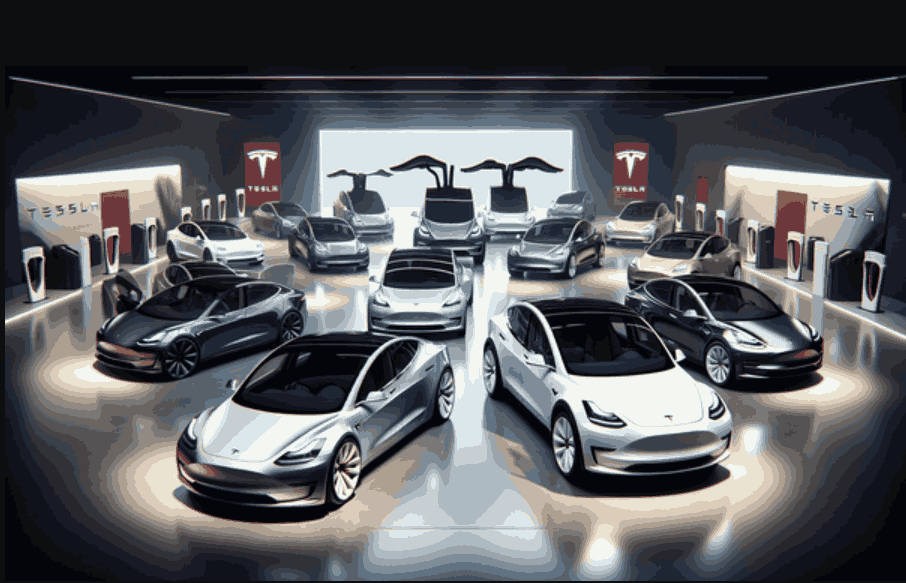
Pingback: Chevrolet Bolt EUV: A Comprehensive Guide to Chevy's Electric Utility Vehicle - Electric Vehicle Buzz
Pingback: The 2024 Chevy Equinox EV Highlights the Importance of Voltage in Electric Vehicles - Electric Vehicle Buzz